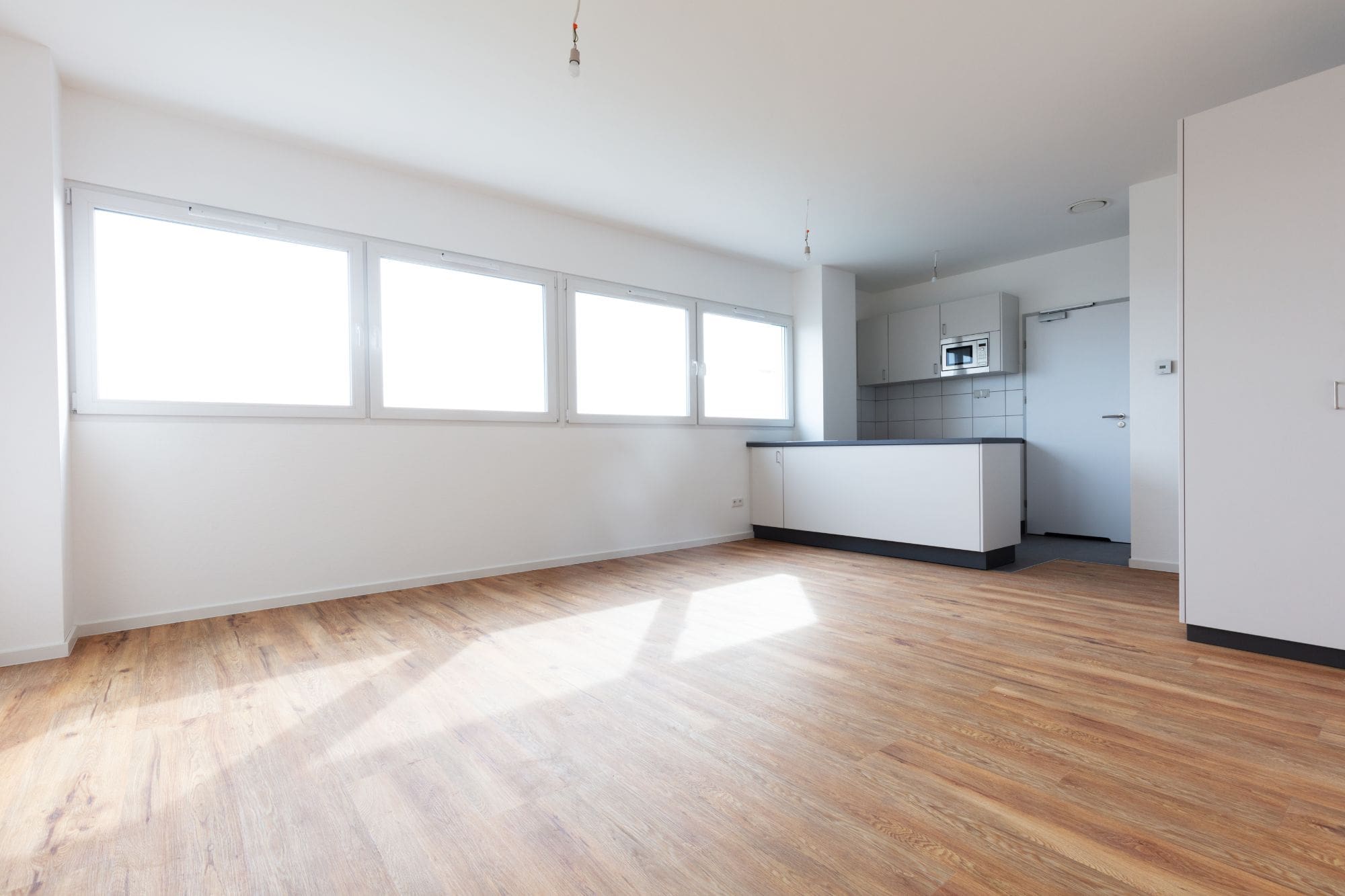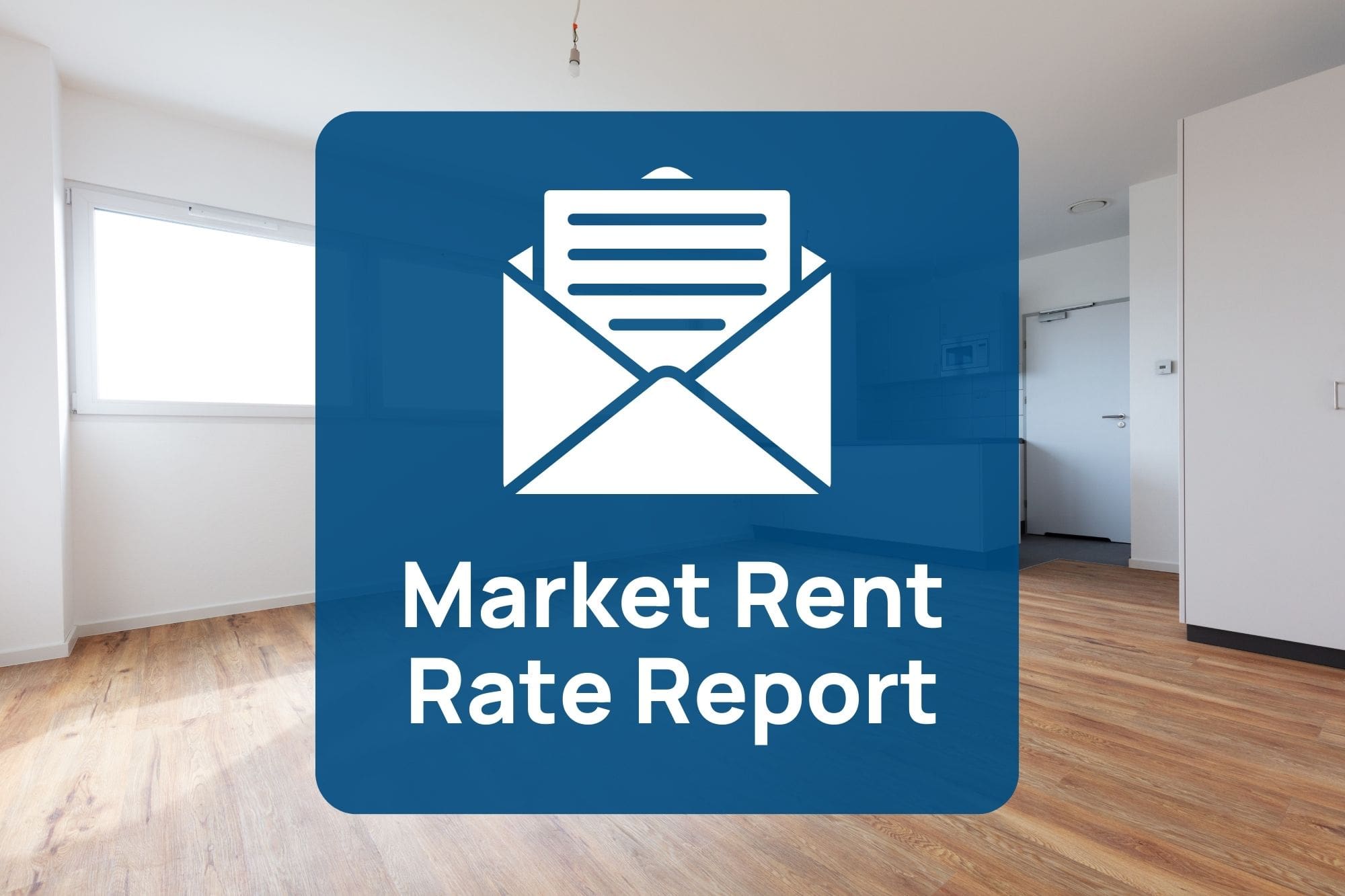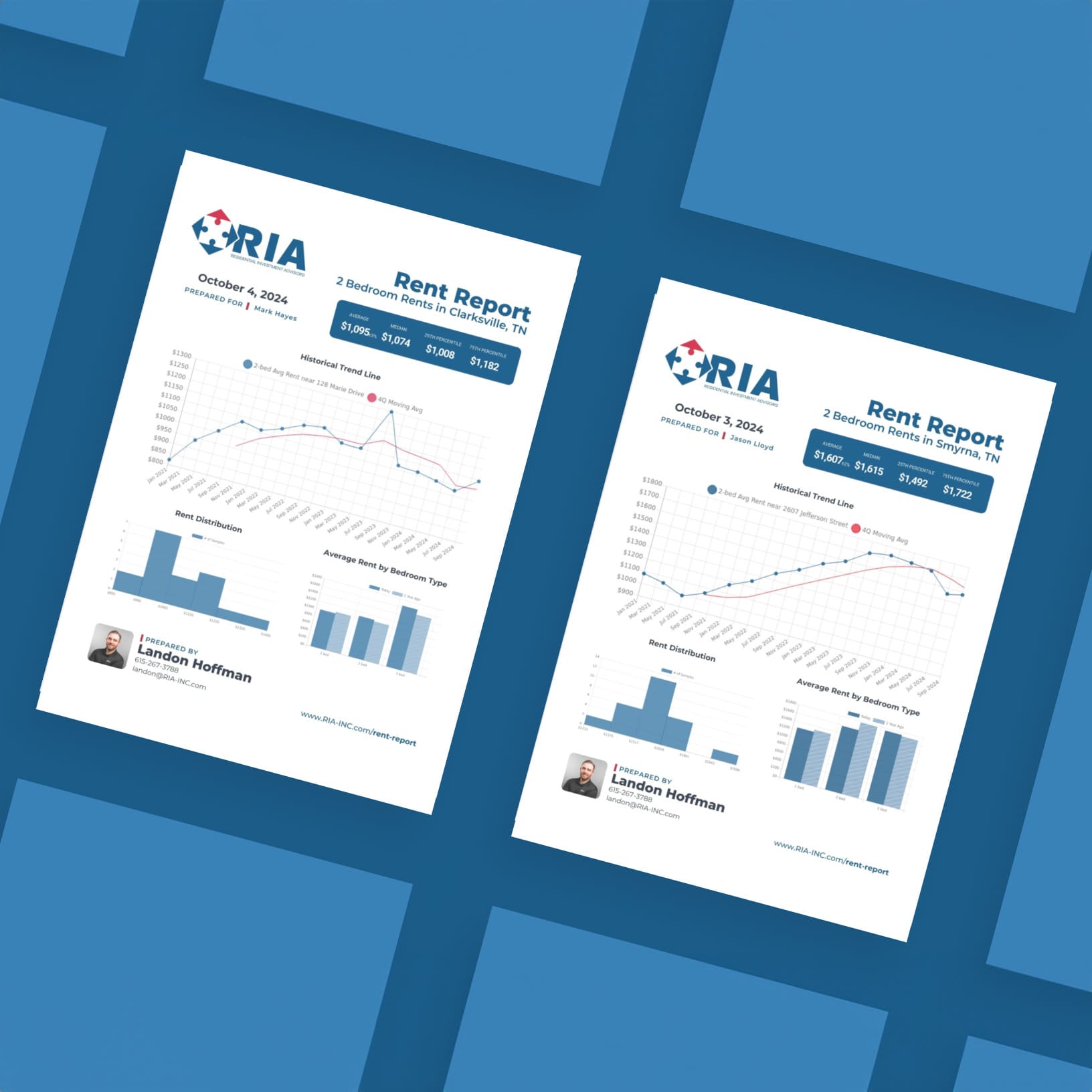Did you know that, according to recent surveys, the average annual rent increased in Tennessee by 18.1% in 2022 (Credit Karma)? As a multifamily owner it is crucial to understand what “Market Rent” and “Fair Market Rent” entail, how they are determined, and the crucial factors influencing these rates. Whether you are a landlord seeking to maximize profitability, a tenant navigating the rental landscape, or an investor making strategic decisions, understanding the dynamics of market rent is essential.
“Keeping up with market rents has the potential to help you build wealth faster than any other aspect of owning apartments.”
As a busy multifamily investor we get that knowing the comparable market rents for every building you own is not possible. Our agents have years of experience helping owners stay on top of these things so that when it is time to sell you will be getting the highest value for your apartment on the market. If you are in Tennessee and would like a free market rent rate analysis done please fill out the form below.
Table of Contents
What is Market Rent
Market rent is the amount a tenant would pay for leasing a property in a specific market. This rate is influenced by factors such as location, size, amenities, and prevailing economic conditions. There is no official formula for market rent, however it is a key indicator of economic value when it comes to buying or selling multifamily real estate.
How is Market Rent Determined
Market rent is determined by supply and demand dynamics, property quality, and prevailing market rates. Landlords and/or listing agents typically conduct extensive research, considering unique property characteristics, to set appropriate market rent. They look at neighboring properties and comparables—similar to listing a single family home—to determine what people are willing to pay for their rent.
Determining Market Rents is like a puzzle for landlords and real estate agents. They start by looking at what other landlords are charging for similar units in the same area. They check out online listings, talk to other property owners, and consider what makes their property special, like its location or amenities. They also think about the local job market and economic conditions. The goal is to find a rent that’s fair – not too high that tenants go elsewhere, and not too low that they miss out on rental income. Multifamily owners must do their homework to make sure their property fits in just right in the rental market.
Why You Should Know Market Rent Rates
Increase Cash Flow on your Multifamily
Raising rent can be a strategy to increase cash flow, especially in multifamily properties. Understanding the local market conditions is crucial to implement this effectively. A property that has a solid cash flow is one that is easier to sell. Your net operating income (NOI) has a direct correlation to your properties value and in the long run, small increases in rent can lead to huge increases in property value.
Your Fixed Expenses are going Up
A second reason to raise your rents is if fixed expenses like property taxes, management fees, and insurance increase. Adjusting rent might be necessary to maintain profitability however this will need to be done carefully so you don’t end up with too many vacant units—as we will discuss later on. Many debt instruments have variable rates or terms where the interest rates may adjust. In some cases this can be advantageous, allowing you to secure a lower interest rate. However, if you bought your property in the early 2020s you may see a sharp increase in your debt servicing costs and as a result, need to raise rents to maintain cashflow.
We have seen property owners raise their rents starting a year or two before their loan is due knowing that the cost of that money would be increasing soon. As a result they were able to get a new loan without having to liquidate assets or put more money into the property. Consult a local professional for more information.
Variable Expenses are Hurting your NOI
Variable expenses, such as maintenance costs and repairs, can impact profitability. Carefully managing these costs may provide alternatives to raising rent. Another valid reason to raise rent is when there are additional people or pets living in the unit without permission. More people means more wear and tear, more utility usage and fewer parking spots all of which have an impact net operating income. Similarly, allowing pets, or having unauthorized pets living in the apartment can cause a lot of damage which leads to more expensive unit turnover.
Avoid Costly Vacancies
Rental prices fluctuate in every market. Your standard annual rent increase may quickly price you out of the market rates causing you to have your tenants seek a new place to live. Vacancy can wreak havoc on your bottom line in multi-family investing. Apartments that stay vacant for more than a couple of months become a big liability on a properties ability to cashflow. This is why we typically recommend investors purchase as large of a unit count as they are able to—more units equals less risk from vacancy. However, not everyone can afford 10+ units. As a result, knowing what market rental rates are is critical for investors to be able to quickly adjust rates to fill empty units when that is required.

How do you Raise Rents of your Multifamily Properties
Providing Ample Warning will Help Avoid Complaints and Vacancies
The most important thing to remember when raising rent is that communicating rent increases effectively, providing notice, and offering incentives for early lease renewals can help avoid tenant complaints. No one likes to have this conversation, and it can be uncomfortable to say the least. However telling a tenant 3 months in advance that a rent increase is pending gives them time to prepare, and avoids a much more challenging conversation the month the rent increase goes into effect.
Are there laws that govern this process?
Typically, yes there are laws that govern the process of raising rents. It is your responsibility as a Landlord to understand local housing and rent control laws. Complying with legal requirements ensures a smooth and lawful process. Tennessee does not place limits on the amount of rent increases and that information plus much more is spelled out in the Tennessee Landlord-Tenant Act. For this reason it is imperative that you consult an attorney before taking steps to increase rents or change leases in any way.
Alternatives to Raising Rent
Although raising rent is within your rights as a property owner, sometimes exploring alternatives, such as reducing variable expenses or finding cost-effective solutions, can be considered before deciding to increase rent. In some cases, owners who have implemented RUBs or have their units individually metered have allowed them to maintain rents while increasing their multi-family NOI. Some owners will add fees to avoid charging higher rents. However savvy renters will see through this scheme quickly limiting its effectiveness. As a result we recommend practicing restraint when accessing fees.
Conclusion
In summary, comprehending the dynamics of market rent and fair market rent is essential for successful multifamily property ownership. The ever-changing rental landscape, influenced by factors such as location, economic conditions, and property quality, demands careful consideration from landlords and investors.
As a multifamily investor, staying informed about comparable market rents is crucial for maximizing profitability. Our experienced agents are dedicated to assisting owners in this endeavor, ensuring optimal value when selling your apartment complex.
Given the pivotal role of market rent in property value, staying aware of rental market fluctuations is imperative. Request a free market rent report by providing minimal property information to make informed decisions and stay ahead in the rental market.



